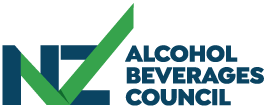Opinion NZ Herald
A recent opinion by Steve Randerson of the Health Coalition Aotearoa claims that occasional education sessions about alcohol are not effective.
But this claim flies in the face not just of logic but also research.
On the logic front, most of us agree that targeted education and support programmes create a better understanding of responsible drinking – a fact borne out by the fact that 76% of the New Zealanders surveyed by the NZ Alcohol Beverages Council agreed that such programmes reduce alcohol-related harm.
Further, research tells us that the earlier you start talking to teenagers about drinking, the less likely it is that they will become hazardous drinkers – or start drinking at all.
This is why education programmes in schools are so important, as the research around New Zealand’s theatre-in-education programme ‘Smashed’ confirms.
‘Smashed’ is an alcohol and health education and wellbeing programme first developed in the UK by Collingwood Learning (not by Diageo as suggested by Randerson) and delivered here by the Life Education Trust to a third of New Zealand secondary schools. It is funded by the Tomorrow Project, a social change charity governed by Spirits NZ, NZ Winegrowers and the Brewers Association.
Since its inception in 2019 to the end of the 2022 school year, the Smashed programme has been delivered to more than 62,000 students across New Zealand. That means it engages with a third of year nine students in Aotearoa each year, building on substance education that starts in primary and intermediate schools.
It provides young people with practical information on how to say no to alcohol or not drinking at all, what a standard drink is and counting drinks, and talks about safe drinking, binge drinking, peer pressure, better decision making, and availability of zero- and low-alcohol drinks. It also includes an interactive workshop.
Between 2021 and 2022 Smashed was independently reviewed by the NZ Council for Educational Research (NZCER), and was found to be valuable to both schools and students. The review found that Smashed increased awareness amongst students of alcohol harm and its consequences, encouraged safer choices and promoted strategies for addressing peer pressure.
Additional research highlighted that after experiencing Smashed, 92% of students said they were less likely to drink alcohol while underage.
Teachers provided similarly positive feedback, saying they used Smashed to reinforce key ideas and messages discussed in the classroom setting. They considered the performance medium complemented in-classroom learning, and that it helped young people see real-life scenarios acted out.
The NZCER review suggested, overall, that teachers believe Smashed reinforces key health information and that it provides a springboard for ongoing conversation in the classroom around alcohol safety.
So is the programme having an impact in the way we would like? It could well be. In 2022 fewer young people were drinking than previously, and those who were drinking were doing so less hazardously, with 57.1% of 15 to 17 year olds having had alcohol in the past year – a decrease of 17.4% (74.5%) on 2006/07.
According to the NZ Youth 2000 survey an increasing proportion of secondary school students are also choosing not to drink. The proportion of secondary students who have never drunk alcohol increased markedly from 26% in 2007, to 45% in 2019.
Another place where occasional education programmes can be delivered is in the workplace, and these are also shown to be effective. In a recent study which included a meta-analysis of 20 studies published between January 1995 and May 2020, such prevention programmes were found to be effective at reducing alcohol consumption.
They showed there was a small – but statistically significant – impact of alcohol prevention programs in the workplace, especially in reducing the quantity of alcohol that individuals consume.
Despite findings such as these, Health Coalition Aotearoa claims the answer to reducing alcohol harm lies in further restricting the marketing of beer, wine and spirits.
Yet marketing has proved to have little effect on overall alcohol consumption. There is no demonstrated correlation or inverse correlation between advertising spend and overall alcohol consumption. Rather, marketing affects consumer brand preference and market positioning.
Other factors are much more likely to influence overall alcohol consumption. For young people, these include the family environment, including parent and sibling drinking behaviour; peer drinking behaviour; personal attitudes towards drinking; and individual characteristics such as impulsivity, and hyperactivity and socioeconomic status.
Of course education is not the only tool we have. The International Alliance for Responsible Drinking (IARD) has introduced an action plan for the alcohol industry to accelerate efforts to reduce underage drinking globally, including in New Zealand. It established a partnership with leading digital platforms (Facebook, Instagram, Snapchat and YouTube) to develop new marketing responsibility standards worldwide that will prevent underage people from seeing and interacting with alcohol brands online. Some brands also have a plan to introduce symbols or written age restrictions on the labels of alcohol drinks.
The way in which New Zealanders and young people drink is undergoing a positive cultural shift, however we have a way to go. Targeted education in schools and in workplaces is doing an important job in helping to shift the dial. It would be foolhardy – and fly in the face of evidence – to end it.
Virginia Nicholls is the executive director of the NZ Alcohol Beverages Council
